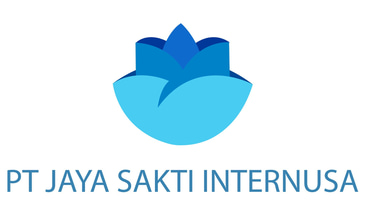Standards for clean water, drinking water and industrial water
Water Quality Standards: Why Every Drop Matters to Your Business
Water is an essential element, but its quality varies depending on the source and intended use. Clean water for daily needs, drinking water, and especially water for industrial processes such as cooling towers and chillers, each have very strict and unique quality standards.
At PT Jaya Sakti Internusa, we understand that understanding and complying with water quality standards is key to operational efficiency, equipment longevity, and regulatory compliance. Let's examine the various water standards and why industrial water standards for your cooling system are so crucial.
1. Clean Water Standards (for Non-Potable Hygienic Needs)
Clean water generally refers to water that is safe for sanitation, bathing, washing, and other household needs that do not involve direct consumption.
Key Parameters (Examples): pH (6.5-8.5), TDS (< 300 mg/L), Chloride (< 200 mg/L), Turbidity (< 15NTU), free from colour and odour.
Objective: To prevent infectious diseases and ensure comfort of use.
2. Drinking Water Standards (Suitable for Consumption)
These are the most stringent standards for human consumption. They refer to Indonesian Minister of Health Regulations (e.g. Permenkes No. 492/Menkes/Per/IV/2010) or WHO standards.
Key Parameters (Examples): pH (6.5-8), TDS (< 300 mg/L), Turbidity (< 5 NTU), free from E. coli, Coliform, Arsenic, Cyanide, Mercury, and various other heavy metals.
Purpose: To ensure the health and safety of those who consume it.
3. Industrial Water Standards for Cooling Towers and Chillers: Very Strict and Critical
Water used in cooling tower and chiller systems must meet specific standards to prevent serious problems such as scaling, corrosion, fouling, and microorganism growth. These standards are often much stricter than those for general clean water, mainly due to the effect of evaporation, which concentrates contaminants.
The following are key parameters to consider (referring to industry best practices and CTI principles):
Total Hardness (Ca & Mg)
Ideal Standard: Below 20 mg/L (as CaCO₃) for makeup water entering the cooling tower for high COC, or maintained below the saturation limit in circulating water.
Impact: High hardness is the main cause of scaling (formation of calcium carbonate and magnesium hydroxide deposits) on heat transfer surfaces, reducing efficiency and damaging components.
Chemical Reaction (Simplified): Ca²⁺ + 2HCO₃⁻ → CaCO₃ (precipitate) + CO₂ + H₂O
Solutions: Water softener, Reverse Osmosis (RO), scale chemical inhibitor.
Chloride (Cl⁻)
Ideal Standard: Below 5 mg/L for closed-system makeup water, and below 200 mg/L (or as recommended by corrosion inhibitor) in open cooling tower circulation water.
Impact: Triggers pitting corrosion and crevice corrosion, especially in stainless steel. Increases water conductivity, accelerating corrosion.
Solution: Reverse Osmosis (RO), specific corrosion chemical inhibitor.
Iron (Fe)
Ideal Standard: Below 0.1 mg/L.
Impact: Causes fouling, staining, triggers under-deposit corrosion, and can interfere with the effectiveness of certain chemical treatments.
Solution: Filtration (sand filter), oxidation, chemical dispersant.
Silica
Ideal Standard: Varies, but often below 100 mg/L in circulating water (depending on pH and temperature).
Impact: Forms very hard silica scale that is difficult to remove, reducing efficiency.
Solution: Reverse Osmosis (RO), special silica chemical dispersant.
Manganese (Mn)
Ideal Standard: Below 0.05 mg/L.
Impact: Similar to iron, can cause fouling, stains, and trigger the growth of certain bacteria.
Solution: Oxidation, filtration.
Total Alkalinity (as CaCO3)
Ideal Standard: Varies depending on the water treatment programme and pH, often in the range of 100−300 mg/L.
Impact: High alkalinity, especially bicarbonate, contributes to calcium carbonate scaling. Alkalinity also acts as a pH buffer.
Solution: Chemical treatment (addition of acid), Reverse Osmosis (RO).
Total Dissolved Solids (TDS)
Ideal Standard: Depends on desired COC and makeup water, but typically below 1000–3000 mg/L in recirculating water. For closed-loop chillers, much lower.
Impact: High TDS increases water conductivity, accelerates corrosion rates, and increases scaling potential if not managed.
Solution: Controlled blowdown, Reverse Osmosis (RO) for makeup water.
Total Suspended Solids (TSS)
Ideal Standard: Below 10 mg/L.
Impact: Causes fouling, erodes components (erosion-corrosion), provides a breeding ground for bacteria, and reduces the effectiveness of chemical treatment.
Solution: Filtration (sand filter, multimedia filter, side stream filter).
pH
Ideal Standard: Generally maintained in the range of 7.0−9.0 for most systems.
Impact: Low pH (acidic) causes aggressive corrosion. High pH (alkaline) can trigger calcium carbonate scaling.
Solution: Addition of acid or base (for pH correction), chemical buffer.
CTI (Cooling Technology Institute) Standards
The CTI itself does not directly publish standardised ‘water parameter standards’ such as SNI or WHO. However, CTI guidelines and recommendations (e.g. in ‘CTI Code ATC-105’) implicitly emphasise the importance of controlled water quality to achieve certified cooling tower performance. The CTI focuses more on:
Thermal Performance: How the cooling tower cools water under certain conditions.
Structural Integrity: Material and construction quality.
Testing: Performance testing procedures.
They strongly recommend water treatment programmes that are effective for local water conditions to maintain certified unit performance. Thus, the above parameters are industry best practices that are in line with CTI's goal of reliable and efficient cooling tower operations.
PT Jaya Sakti Internusa: Total Solutions for Your Water Quality
Understanding the complexities of water quality is our speciality. PT Jaya Sakti Internusa, with experience since 1998, is ready to help you achieve the water quality standards required for your cooling towers and chillers through:
Comprehensive Water Analysis: Identifying all critical parameters.
Water Pre-Treatment Systems: Ranging from sand filters, carbon filters, softeners, to Reverse Osmosis (RO) (BWRO, SWRO) and Nanofiltration.
Chemical Treatment & Automatic Dosing Systems: The right chemical programme to control scale, corrosion, and microorganisms.
Side Stream Filtration Solutions: To maintain the cleanliness of circulating water.
Real-time Monitoring & Control System: To ensure water parameters remain within safe limits.
Do not let poor water quality threaten your investment and operations. Contact us for consultation and integrated water treatment solutions.
